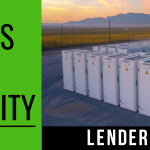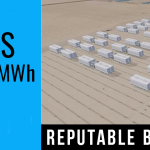
Puerto Rico is still struggling to recover from the damage caused by Hurricane Maria, a Category 5 storm that obliterated the island’s aging and poorly maintained electrical grid. Like many islands, Puerto Rico has depended for years on electricity from diesel and coal powered generators. Virtually all of them were located along the southern coast of the island but the majority of the demand was in the north — not only San Juan but the industrial areas around Bayamòn together with the resort communities of Carolina, Rincon, and Fajardo.
PREPA, the Puerto Rico Electric Power Authority, constructed long distance transmission lines that traversed the mountainous area in the middle of the island to connect supply with demand. Maria decimated those transmission lines. Not only did it rip out the wires, it toppled the towers and stanchions that supported them. After the storm was done venting its wrath on Puerto Rico, there was little left of its electrical grid.
Ahead of a formal announcement on February 12, PREPA has released a draft of its plan to rebuild Puerto Rico’s electrical grid over the next 20 years. According to a report by the Sierra Club, the proposals contained in that draft would divide the country into 8 regional grids that are neither maxi nor mini in size. Let’s call them midi-grids. The regional grids would be interconnected but capable of functioning independently in the event of another storm like Maria. They could be owned by the utility company or private groups.
Taken as a whole, the draft plan calls for the largest build-out of solar and battery storage in the history of the US, according to Solar Industry Magazine. That’s good news for renewable energy advocates. What’s not such good news is the construction of new natural gas powered generating facilities, which will require the creation of three new LNG terminals. Still, natural gas burns cleaner than diesel, especially when it comes to the particulates that contribute to pulmonary and cardiovascular disease that diesel fuels spew into the atmosphere.
“During Hurricane Maria, hundreds of people died simply because they couldn’t keep their insulin refrigerated or their oxygen machines running,” says Adriana Gonzales, environmental justice organizer for Sierra Club de Puerto Rico. “We need the solar and storage in this plan so we can protect health and safety through the next hurricane with distributed, reliable energy infrastructure.





